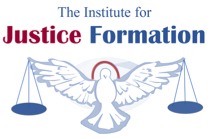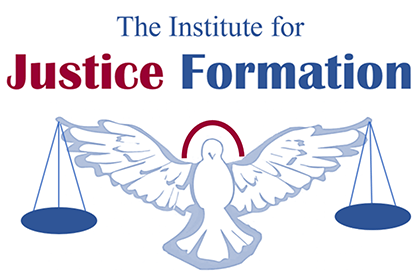BELINDA BARNETT
Please introduce yourself, share a little about your background and why you took this course.
My name is Belinda Barnett. I am a retired federal prosecutor and a volunteer and student at the John Leland Center. I grew up in a rural Alabama community that was about 99% white. Now, I am a member of an incredibly diverse church, the Church at Clarendon in Arlington, which includes a female African American senior pastor, Asian Americans, Latinos(as), Middle Easterners, African Americans, and Caucasians, including occasionally Europeans.
As plans for this course were developing, I found the syllabus intriguing. I was interested in learning from a wide variety of professors what both the Old and New Testaments have to say about justice.
Before taking the course In Search of Biblical Justice, how would you have defined justice?
I thought of justice as fair treatment of all because all are made in the image of God. I regarded the work of justice primarily as the responsibility of the legal system.
Tell us about one or two lectures that most impacted your perception of justice during the semester. How was justice as recognized in Scripture defined? What biblical texts did the professor use as support?
Rev. Dr. Wallace’s lecture on the creation story was especially impactful. Instead of focusing on the typical literal day-by-day account that obscures the significant call of the story, he asked us to consider the questions the Scripture poses. His lecture made us think about what Genesis 1 and 2 tell us about God’s character and what that reveals about who we are meant to be given that God created us in his image. We also explored what the Scripture tells us about God’s relation to and trust of humanity and humanity’s responsibility and relation to the rest of creation. Wallace defined justice as “what we do that moves this world toward the vision of ‘shalom’ [or human flourishing] that God has for all humanity.”
I also appreciated Dean Lee’s timely message of “Justice as Virtue,” which focused on just relations. He expanded on Aquinas’s definition of justice as giving others their due. While it is easy in these divisive times to have dismissive gut reactions to those we disagree with, Dean Lee emphasized that we should show proper respect and be open to the possibility others have something to say, even if we disagree with them. We honor God in such just relations and commit the sin of injustice when we show disrespect to others. Dean Lee noted how the prophets and ministry of Jesus reveal that sin against others is sin against God. Paul’s letters to the Corinthians and Galatians also emphasize just relations via reconciliation and seeing God’s people with God’s eyes. Dean Lee underscored that the community must sustain and reinforce justice, using the example of Jesus reinforcing Peter by asking him three times if he loved him after Peter’s denial. Drawing upon the work of his mentor Nicholas Wolterstorff, Dean Lee also noted that justice does not move you until you can imagine what injustice feels like to the victimized. He stressed the necessity of reading the Bible with persons unlike yourself.
How have these points and the course in general changed or advanced what you think about or how you define justice?
These lectures have caused me to think more deeply about what being made in the image of God and just relations mean with respect to how we live our day-to-day lives. The entire course was a reminder and encouragement to go below the surface of Scripture to uncover and apply its real import. The lectures reminded me to listen to those I disagree with, to try to understand their perspective, and to view them with God’s eyes. After taking this course, I have a greater appreciation of who God is and who we should be, especially in our relations with others. We all bear responsibility for justice, and at its core, justice is right relationships.
How will these learnings and reflections impact your ministry going forward?
I would like to share what I have learned in educational settings and ministries of reconciliation, including to combat polarization and to help people find common ground. It is easy for us to live in bubbles with friends like ourselves, but not having friends from different backgrounds leads to divisions in society. I know that my later life experiences sitting beside church friends who are people of color and studying the Bible, serving on committees, and sharing meals with them have caused me to think automatically about their perspective on issues such as Confederate monuments. Growing up, I never stopped to think about these monuments. I was oblivious to their message to African Americans because I did not have African American friends and did not read history written from the perspective of slaves. We need to have friends from different, especially intentionally disadvantaged backgrounds, read history written from their perspectives, and visit sites recounting that history to know, understand, and retain the history.

